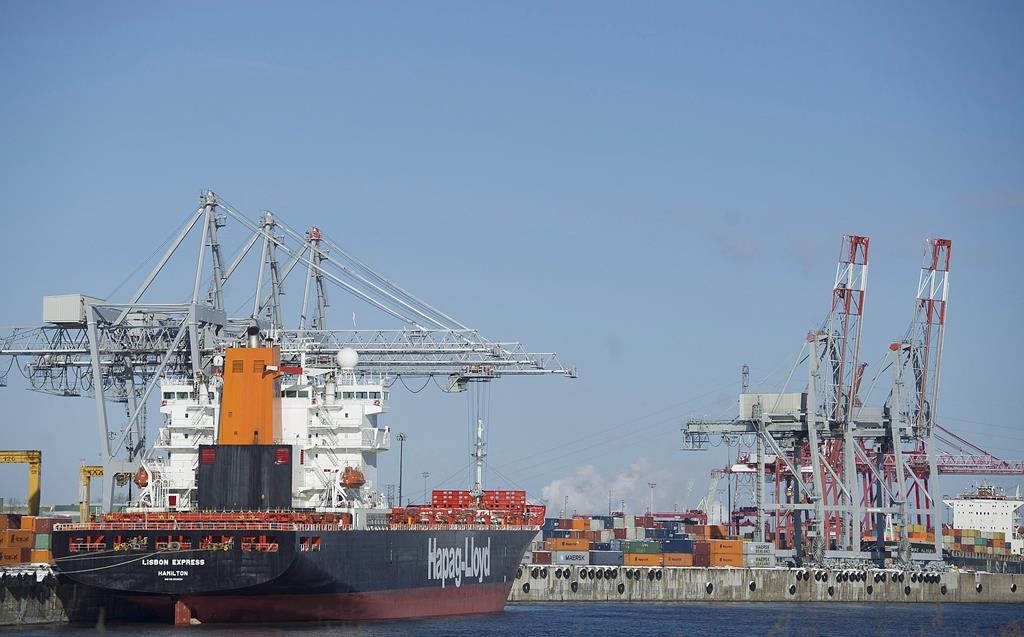Longshoremen at the Port of Montreal launched a four-day strike on Monday morning, throwing a potential wrench into the economic recovery amid COVID-19.

Union members said they will not provide mooring services during the work stoppage, except for supplies to Newfoundland and Labrador and for grain vessels in order to comply with a decision rendered by the Canada Industrial Relations Board.
The strike follows weeks-long discussions between the Canadian Union of Public Employees and the Maritime Employers Union that were steered by a federally appointed mediator.
The union, which gave 72 hours’ notice Friday to the Maritime Employers Association, said the dispute centres mainly on working hours.
“It’s to put economic pressure on the shipping companies and so that they move their mandate to the negotiating table,” CUPE spokesman Michel Murray said at a press conference Monday afternoon.
The Maritime Employers Association said it was “surprised and extremely disappointed” by the union decision “to use pressure tactics such as a strike.”
One company used executives to carry out certain tasks “for safety purposes and to free the railways” along the 26 kilometre-long port, the association said.

Get daily National news
Murray said that was an “affront” by the company deeming it “a declaration of war.”
The standoff follows a 21-month battle over the definition of “essential service” amid negotiations for a new collective agreement.
The Canada Industrial Relations Board concluded last month that the employers association had not demonstrated “imminent and serious risks to the health and safety of the public” — the criteria for an essential service — in the event of a strike.
The Maritime Employers Association has asked the board in October 2018 to review whether longshoremen carry out essential work in a bid to shield the docks from strike threats.
Longshoremen work up to 19 days out of 21 before earning a two-day leave, a result of heavy activity at the port, said Murray.
Those who do not wind up working all 19 days, however, are compensated for the time they are on call.
In 2015, longshoremen across Quebec earned an average of $110,000 before benefits, according to figures from the province’s labour ministry. The benefits package for Montreal longshoremen amounts to $22,000 annually, including a defined-benefit pension plan paid for by the employer.
Concerns in the business community revolve around the prospect of a prolonged strike.
“I do not believe that we can have a long-term strike. The impact would just be too big,” said Michel Leblanc, who heads the Chamber of Commerce of Metropolitan Montreal.
Importers, exporters, producers and retailers all rely on an efficient flow of goods through Canada’s second-biggest port. While products can move through alternate networks by truck and rail to reach their destinations, a snarled logistics chain would compel delays and higher prices for consumers, and could weigh on businesses already struggling amid the fallout from the COVID-19 pandemic, Leblanc said.
The strike does not affect liquid bulk handling, the Oceanex service and the grain terminal, the port said.







Comments